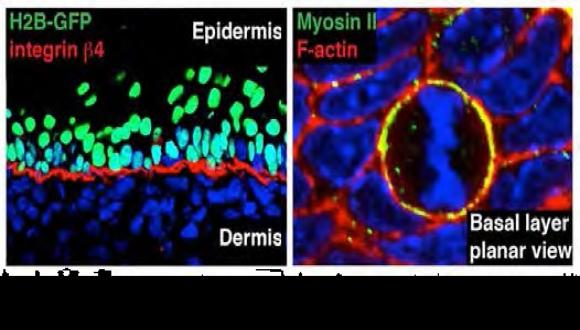The Mechanobiology of Tissue Development Homeostasis and Disease
Dr. Chen Luxenburg, Ph.D.
Department of Cell & Developmental Biology
Dr. Chen Luxenburg, Ph.D.
Department of Cell & Developmental Biology
Many biological processes such as cell migration and division require mechanical forces. However, similar to chemical cues, mechanical forces also play a key regulatory role that affect many additional key biological processes. Therefore, it is not surprising that changes in the mechanical properties of tissues contribute to the development of common diseases.
Our lab uses the mouse skin epidermis as a model system to study how mechanical and geometrical cues regulate morphogenesis, affect gene expression and contribute to cell fate determination during development, homeostasis and disease. The skin is an ideal model system for these studies for the following reasons:
- The skin is a mechanosensitive organ, capable of sensing and responding to mechanical signals.
- Defects in the mechanical and geometrical properties of epidermal cells are among the hallmarks of common skin diseases including cancer and psoriasis.
- The epidermiscan easily and rapidly be manipulated genetically in vivo, making it a tractable model system to discover novel genes and study their function.


